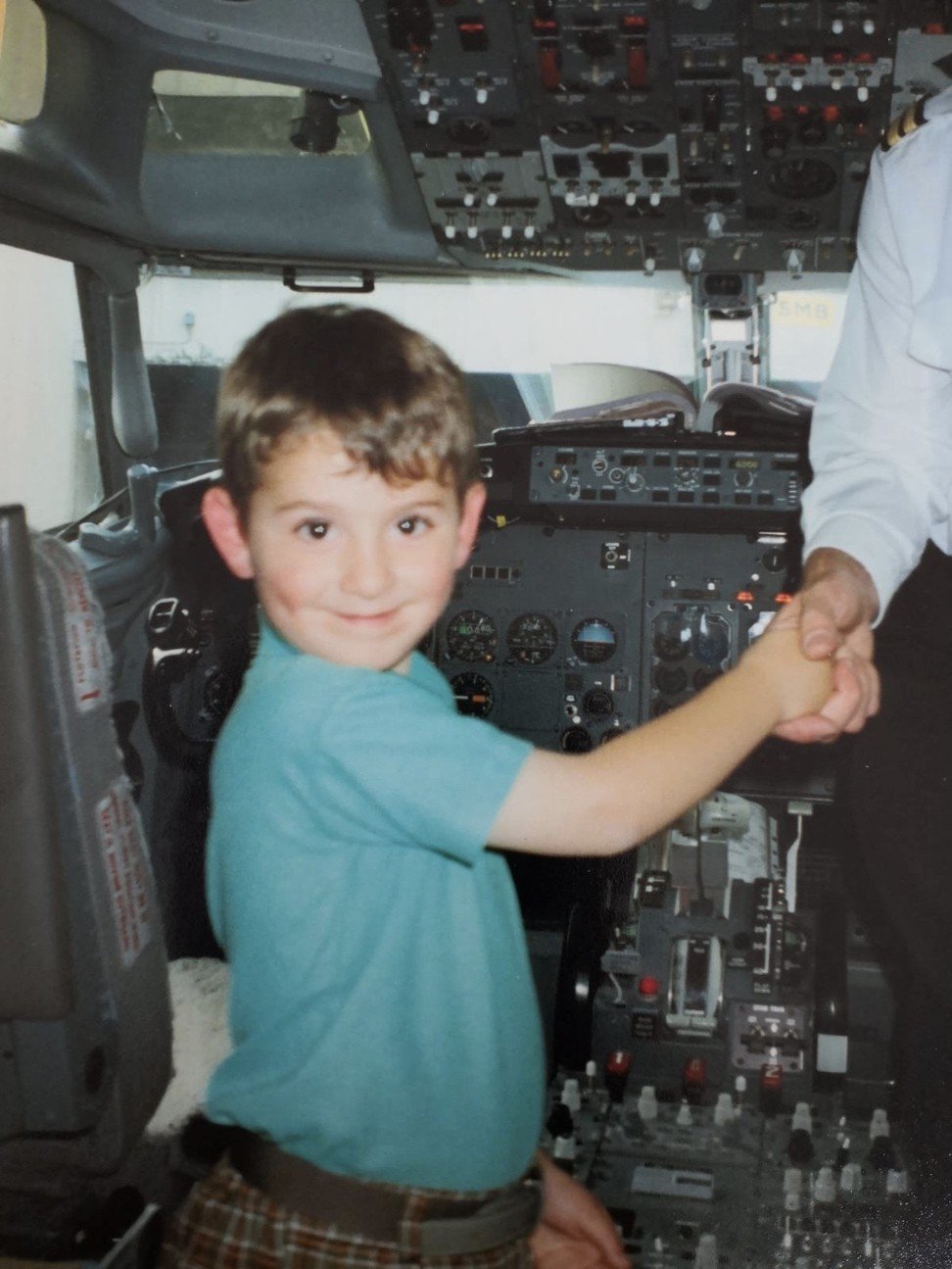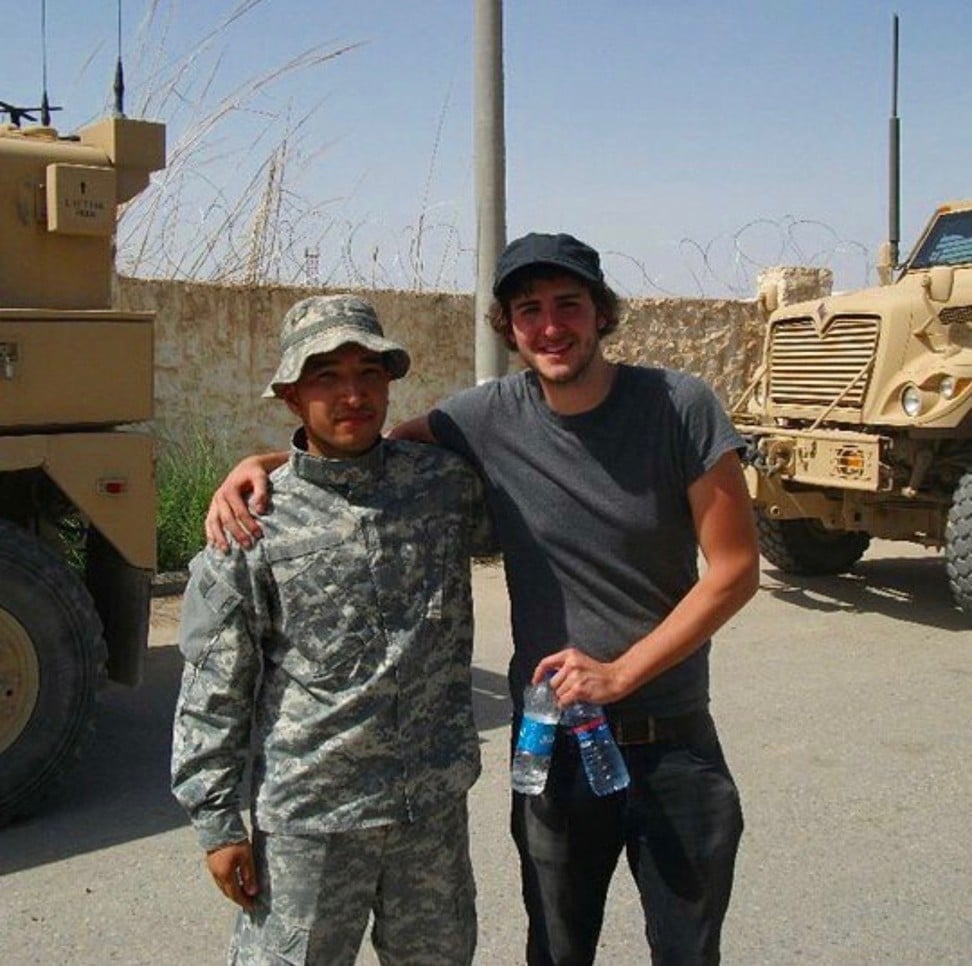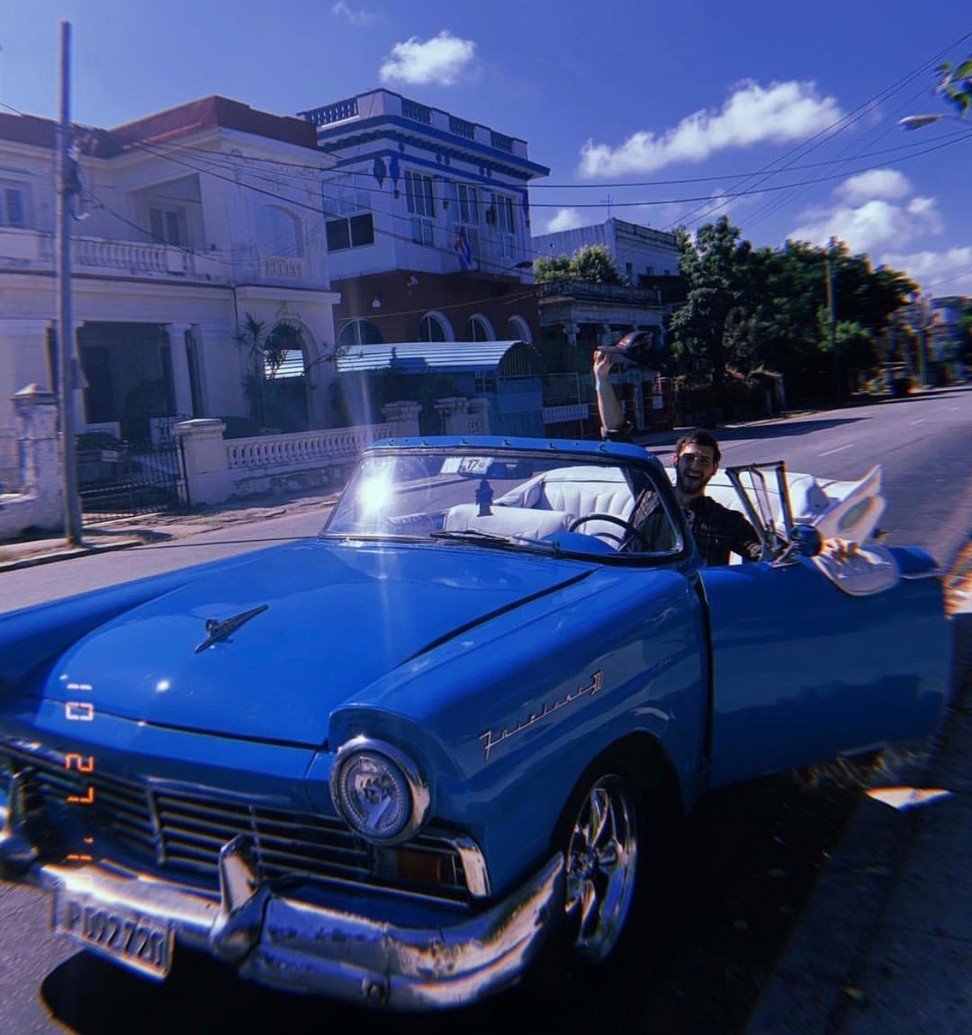
Meet James Asquith – he had travelled to every country in the world by 24 and now he helps others do the same
The former investment banker became the youngest person to visit all 196 sovereign countries in 2013 and has used his experience to launch a travel app, Holiday Swap

Making ends meet: I was born in a town called Cuckfield, in Sussex, south of London, in 1988. I have a small but close-knit family. My mum worked as a solicitor’s PA and my dad was a pilot for British Midland, and I’ve got an older sister. My parents put my sister and I through private school, which was the best gift I ever got from them, but because of that they didn’t have much else.
When I was 12, we were struggling to make ends meet and it looked like I might be taken out of school – Haileybury, in Hertfordshire. I went up and down the street washing cars for £5 to £10 and collected £150, which I put in a jar. I gave it to my mum and said, “This will help.” She took the money and set up a bank account in my name.
I had a little bank book and would get it stamped each time money went in or out. I remember thinking then that I never wanted to struggle to make ends meet. At 15, my classmates were adding specifications onto what their first car was going to be. I was around people who materially had more than we did, they were entitled, but I had everything I needed.
Learning the hard way: From the age of 16 I had three jobs – working in a balloon shop, behind a bar and at a cricket ground. My vision was to save money to buy a nice house. Just before I went to university, I set up an events business and made a decent amount of money. I went to the London School of Economics. I started trading shares with the money I’d saved up. The financial crisis hit, I split the money between the three main UK banking stocks – Lloyds, Barclays and RBS. In three weeks, I’d tripled my money. I had no idea what I was doing, but I made a lot of money.

Aged 20, I put a bid on a house for just under £1 million. The guy called me a week later. My shares were down 10 per cent, so I asked him to give me another week. The next day they were down another 10 per cent. I ended up losing almost everything and didn’t buy the house in the end. It taught me a good life lesson.
Catching the travel bug: After my first year at university, my two best friends said they were going to Vietnam to volunteer over the summer and build homes for people. Outside of family trips to Orlando, it was my first long-haul trip and I caught the travel bug. It was a four-month trip – we went on to Singapore, Malaysia, Cambodia and Laos. It was the best education – not only learning about myself, but learning about others, understanding and tolerating different religions, cultures, ways of doing things.
Back at LSE, 20 minutes into lecture one of my second year, I closed my book and said, “I’m not doing this again. It’s a step up in complexity of the course, but the year is going to be the same as last year.” I packed a bag and headed to Heathrow and was away nine months, travelling to South America, Sierra Leone, Iran, Syria – I saw a lot of different places, experienced a lot of culture shock. I got back to LSE seven weeks before the end-of-year exams and literally slept in the library – there was a beanbag and a shower – and caught up on my lectures. I got OK grades.
On a shoestring: I did something similar in the following years. I travelled cheaply, using the money I’d made on the shares, and got odd jobs along the way. In Peru, I worked at a beach bar and got my accommodation and food covered and a few dollars. Meanwhile, at LSE everyone was applying to investment banks for internships.
When people asked me why I wanted to be a trader, I told them about the amount of money I’d made and lost. I think that’s why banks offered me a job – it was the very real emotion that comes with losing money, which is important, because you might get there and freeze up if you start losing money. If you’ve lost your own money you know how to deal with it and not be an idiot with it.
Record breaker: At 22, I started at HSBC in London. It was 2011, a bad time for trading bonds and debt and two weeks into my job, almost everyone on the floor was fired. I was thrown in at the deep end and never looked back. It was around this time I realised that I’d visited over 100 countries. I began to think about trying for the Guinness World Record for being the youngest person to visit all 196 sovereign nations.

My first boss was lenient in terms of holiday time and he covered my ass. Eighteen months into my time at HSBC, I visited my last country, Micronesia, in the South Pacific. When I hit the world record, I was 24 years old and the press went crazy. There was a picture of me on the front of London’s Metro newspaper – jumping in the air. I didn’t go to work for two days, I didn’t want the attention. I thought, I can’t be on a Tube train with my face in the paper, so I hid from it. I was focused on my career in banking and finance. It was a fun job – I worked with some great people, and some total a**holes, but that’s life.
Traveller’s tales: In 2012, a senior guy at HSBC said to me, “You’ve done this incredible thing, you’ve been to every country, surely you should be doing something with travel because banking is done.” I didn’t see it like that, I was focused on progressing in my career. After four years at HSBC, I was headhunted and went to Deutsche Bank as a vice-president.
In 2015, I was at Deutsche Bank and the ratio of a**holes had gone up. I started writing a book about my travels, Breaking Borders: Travels in Pursuit of an Impossible Record (2016), which I self-published on Amazon. By 2017, I knew I wanted to do something in travel but I didn’t know what. On my gardening leave between Deutsche Bank and the Japanese bankSumitomo Mitsui Banking Corporation (SMBC), where I’d been offered a director position, I went with a friend to Cluj-Napoca, in Romania. It was voted the European Youth Capital in 2015 and had a young population. M
y friend told some people in a bar that I’d been to every country in the world and they asked how I managed to travel so much. They said it wasn’t the flights they couldn’t afford, but the accommodation.

Swapping homes: On the flight back to London, I thought about what a cool place Cluj-Napoca was, but that not many people knew about it. The people there had told me that London was expensive – even a hostel in Central London costs US$60-70.
It occurred to me that when I was there, these people could have been staying at mine in London. And that’s when the idea hit me – what about something that is actually a sharing economy, that everyone could use, that doesn’t have a financial transaction between users. I started my company, Holiday Swap, a month before I started at SMBC. I was distracted at work, probably not at my desk a lot of the time and taking calls for the company, and then working when I got home.
Friends in all places: I left the bank in March 2018 – I was there for just under a year. Someone in the press once described Holiday Swap as “travel Tinder”, I’m not sure how I feel about that, it’s nothing to do with dating. The app lets people swap homes for US$1 a night. We’re in 185 countries. We are growing by 3,500 users every day and have over half a million users around the world. By the middle of next year, we are aiming to be at 5 million users.
I travel all the time – I’ve done 160 flights in 2019. I know people in almost every place in the world that I land. The biggest challenge is my calendar on my phone, shifting time zones. The old saying, find something that you love and you’ll never work another day in your life, is something I genuinely feel.